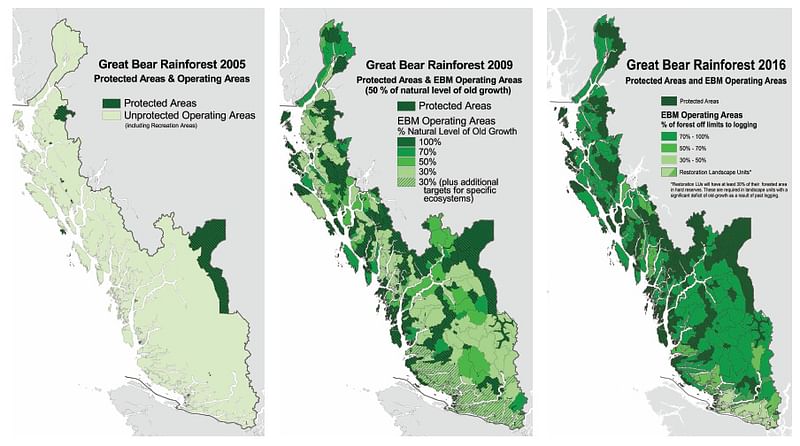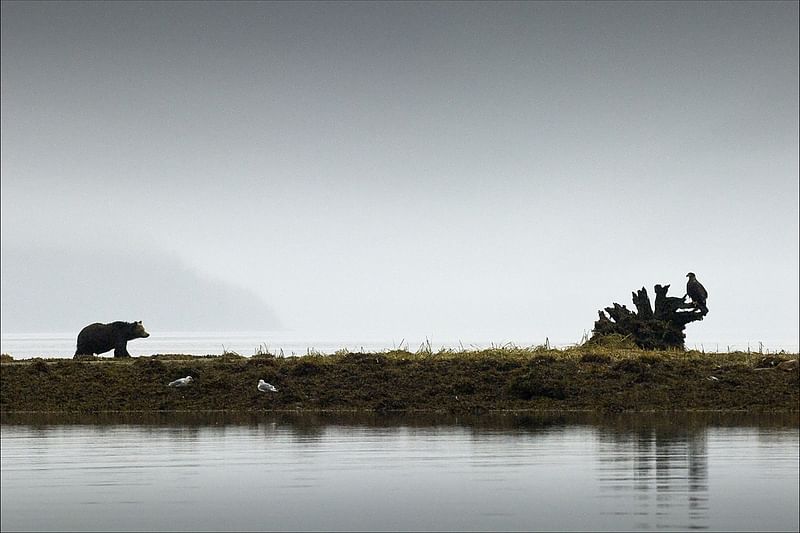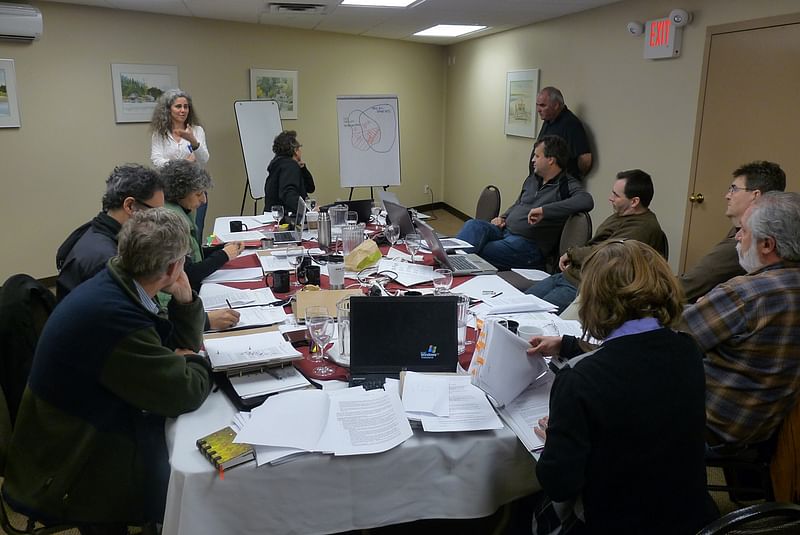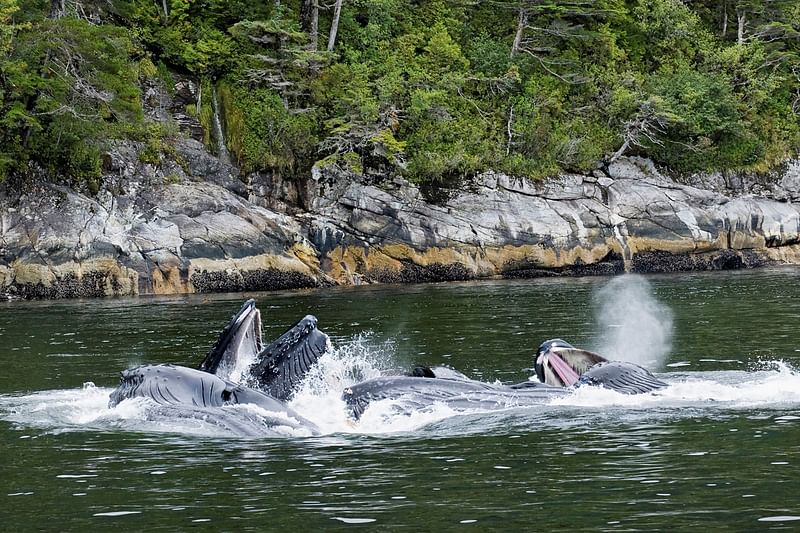
Rainforest Solutions Project wins the 2016 Fuller Challenge
By Justine Testado|
Thursday, Oct 6, 2016
Related
The Rainforest Solutions Project has won the 2016 Fuller Challenge! Six equally worthy finalist teams gave their all in hopes to win the $100,000 grand prize to support their initiative. Winners in the last few years include GreenWave vertical farming, the Living Breakwaters oyster-tecture project, and Ecovative Mushroom Plastics.
Greenpeace, Sierra Club BC, and Stand.earth formed the Rainforest Solutions Project as part of the Tides Canada Initiative. The coalition has spent nearly two decades developing a sophisticated legal and policy framework called Ecosystem-Based Management to tackle the persisting struggle over Canada's treasured Great Bear Rainforest, while also negotiating the conflicting interests of multiple groups. For starters, the project was commended for how it further proves the dire global need for stronger ecological responsibility.
Read on for more about Rainforest Solutions Project.

RELATED NEWS Final six revealed for 2016 Fuller Challenge

The Rainforest Solutions Project played a critical role in creating one of the most “extraordinary [victories for] conservation, social justice, and indigenous rights in recent memory” in a decades-long struggle over the Great Bear Rainforest, one of the world's last pristine temperate rainforests. The Project resulted in the 250-year agreement between all the stakeholders — government, First Nations, environmentalists, and logging companies — to conserve and sustainably manage the 15 million-acre forest (It can be done!). Thanks to the initiative, 85 percent of the forest is now legally off-limits to logging.

In their statement, the Fuller Challenge Review Committee wrote: “The project’s 20+-year process involved many players, including provincial, regional, and local governments in BC and the Canadian federal government; over two dozen First Nations; giant multinational logging and mining corporations; and many environmental organizations. Demonstrating the power of a small group of committed people to effect great change, the initiative was shepherded by a small, primarily women-led, coordination/leadership group that integrated a wide range of tactics at different stages of the process. It is difficult to find a comparable conservation struggle in which a core team carried through such a complex, multi-pronged strategy over decades and on such a massive scale. Oversight, collaborative problem solving, and building a narrative for model transfer have been just some of the methods demonstrated as effective within this initiative.”


“The Rainforest Solutions Project balances two core principles: ‘Ecosystem-Based Management,’ which is a scientific approach drawing on the cutting edge of forestry, wildlife biology, and climate studies; and a deep respect for the sovereignty, cultural traditions, and worldviews of indigenous peoples. Since many of the world’s remaining relatively intact ecosystems and biodiversity hotspots are home to long established indigenous cultural groups, harmonizing ecosystem-based management with traditional knowledge is critical to any credible strategy for the future health of the biosphere. The Rainforest Solutions Project team is now making efforts to reach out across the world to share those aspects of their model that are exportable and widely applicable in a range of contexts.”

RELATED NEWS Inaugural Fuller Challenge Student Winner CHHAT works to find a “universal building solution”

“The Rainforest Solutions project has resulted in a 15 million acre largely intact ‘living laboratory’ — a case study for the paradigm shift required in the way we think about the Earth’s lungs and the growing costs of climate change to our planet and all future generations [...] The design element of this project is the method of principled, multilateral negotiations that respects and upholds indigenous rights; fosters partnerships between divergent economic, political, and ecological values; and embraces the scale and complexity at which all of these systems operate. The Rainforest Solutions Project also maps out the often unglamorous but so necessary measures of knowledge transfer, monitoring, and continued problem-solving required to sustain such an achievement.”


The Rainforest Solutions Project said of their work: “The problems we faced are very common, although the ecosystems and First Nations cultures are unique. The process for the parties to move through conflict to collaboration required alliances and cross-cultural relationships, while holding firm to key principles. This helped us all navigate through complex issues to bring the art of the possible into being at a meaningful scale now and into the future.”
You can learn more about the Rainforest Solutions Project here.

RELATED NEWS "GreenWave" wins the 2015 Buckminster Fuller Challenge


Share
0 Comments
Comment as :